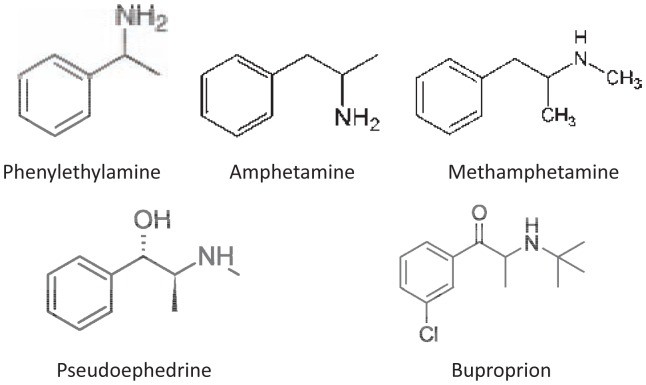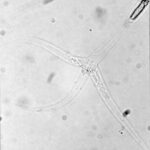What Is The Most Common False Positive Drug Test? At WHAT.EDU.VN, we understand the confusion and concern surrounding inaccurate drug test results. Let’s explore the common causes, substances involved, and steps you can take if you receive a false positive. We provide solutions to help you navigate this challenging situation. Learn about cross-reactivity, immunoassay limitations, and confirmatory testing.
1. Understanding False Positive Drug Tests
A false positive drug test occurs when the test indicates the presence of a drug in your system, even though you haven’t taken it. This can happen for various reasons, and it’s important to understand the underlying mechanisms.
1.1. Immunoassay Technology
Most initial drug screenings use immunoassays. These tests are quick and cost-effective but can be prone to cross-reactivity. Immunoassays work by detecting specific antibodies that bind to certain drugs or their metabolites. If another substance in your system has a similar chemical structure, it might also bind to the antibody, leading to a false positive result.
1.2. Cross-Reactivity Explained
Cross-reactivity is when a substance other than the target drug reacts with the antibody used in the immunoassay. This can happen due to structural similarities between different compounds.
1.3. Factors Influencing False Positives
Several factors can influence the likelihood of a false positive drug test:
- Medications: Certain prescription and over-the-counter medications can cause false positives.
- Food and Supplements: In rare cases, certain foods and dietary supplements can interfere with drug tests.
- Lab Errors: While less common, errors in the lab during the testing process can also lead to false positives.
2. Common Culprits: Drugs and Substances Causing False Positives
Knowing which substances are most likely to cause false positives can help you understand your risk and take appropriate action.
2.1. Over-the-Counter Medications
Some OTC medications can trigger false positives for specific drugs:
- Decongestants: Medications containing pseudoephedrine or phenylephrine can cause false positives for amphetamines.
- Pain Relievers: Certain pain relievers, like ibuprofen and naproxen, have been linked to false positives for marijuana (THC).
- Cold Remedies: Dextromethorphan, a common ingredient in cough suppressants, can cause false positives for PCP (phencyclidine).
2.2. Prescription Drugs
Several prescription medications are known to cause false positive drug tests:
- Antidepressants: Sertraline (Zoloft) and trazodone can cause false positives for benzodiazepines or amphetamines.
- Antibiotics: Some antibiotics, like quinolones, have been associated with false positives for opioids.
- ADHD Medications: Medications like methylphenidate (Ritalin) can sometimes cause false positives for amphetamines.
2.3. Food and Beverages
While less common, certain foods and beverages can also lead to false positives:
- Poppy Seeds: Eating poppy seeds can cause a false positive for opioids due to the presence of morphine and codeine.
- Coca Tea: Drinking coca tea, common in South America, can cause a false positive for cocaine.
- Energy Drinks: Some energy drinks contain ingredients that could potentially interfere with drug tests, though this is rare.
2.4. CBD Products
The rise in popularity of CBD products has introduced a new factor in drug testing. Many CBD products contain trace amounts of THC, the psychoactive compound in marijuana. While these amounts are legally required to be below 0.3%, they can still trigger a positive result on a drug test, especially with frequent use. It’s important to purchase CBD products from reputable sources that provide third-party lab testing to verify the THC content.
2.5. Other Potential Causes
Other less common factors can also contribute to false positives:
- Kidney Problems: Kidney disease can affect the way drugs are metabolized and excreted, potentially leading to inaccurate test results.
- Liver Disease: Similar to kidney problems, liver disease can interfere with drug metabolism and increase the risk of false positives.
- Passive Exposure: While unlikely, passive exposure to marijuana smoke in a poorly ventilated area could theoretically lead to a positive test, though this is highly dependent on the sensitivity of the test and the duration/intensity of exposure.
- Bacterial Infections: In rare cases, certain bacterial infections can produce substances that cross-react with drug test antibodies.
3. The Most Common False Positive Drug Test: What the Data Says
While the specific drug test with the highest rate of false positives can vary depending on the population being tested and the specific immunoassay used, some drugs are more frequently associated with false positives than others.
3.1. Amphetamines
Amphetamine tests are notorious for their high rate of false positives. This is primarily due to the structural similarity of amphetamines to many other compounds, including:
- Decongestants: Pseudoephedrine, phenylephrine
- Antidepressants: Bupropion, trazodone
- ADHD Medications: Methylphenidate
3.2. Marijuana (THC)
While marijuana tests are generally considered more accurate than amphetamine tests, false positives can still occur. Some potential causes include:
- NSAIDs: Ibuprofen, naproxen
- CBD Products: Containing trace amounts of THC
- Passive Exposure: Though rare, possible in extreme circumstances
3.3. Opioids
Opioid tests can also produce false positives, although less frequently than amphetamine or marijuana tests. Some potential causes include:
- Poppy Seeds: Containing morphine and codeine
- Certain Antibiotics: Quinolones
3.4. Benzodiazepines
False positives for benzodiazepines are less common but can occur due to cross-reactivity with:
- Sertraline (Zoloft)
- Efavirenz (HIV medication)
3.5. PCP (Phencyclidine)
PCP tests are particularly prone to false positives due to cross-reactivity with a wide range of substances, including:
- Dextromethorphan (cough suppressant)
- Diphenhydramine (antihistamine)
- Ketamine
- Tramadol (pain reliever)
- Venlafaxine (antidepressant)
4. Navigating a False Positive: Steps to Take
Receiving a false positive drug test result can be stressful and have significant consequences. Here’s what you should do:
4.1. Request a Confirmation Test
The most important step is to request a confirmation test using a more specific method, such as gas chromatography-mass spectrometry (GC-MS) or liquid chromatography-mass spectrometry (LC-MS). These tests are much more accurate than immunoassays and can identify the specific substances present in your system.
4.2. Disclose Medications and Substances
Inform the testing facility or your employer about any medications, supplements, or foods you’ve consumed that could potentially interfere with the test. Provide documentation, such as prescriptions or product labels, to support your claim.
4.3. Consult with a Medical Professional
Talk to your doctor about the false positive result. They can help you understand the potential causes and provide documentation or expert testimony if needed.
4.4. Review Testing Policies
Familiarize yourself with the testing policies of your employer, school, or organization. Understand your rights and the procedures for disputing a false positive result.
4.5. Consider Legal Counsel
If the false positive has significant consequences, such as job loss or legal repercussions, consider consulting with an attorney who specializes in employment law or drug testing.
5. Understanding Confirmation Tests: GC-MS and LC-MS
Confirmation tests are essential for verifying the accuracy of initial immunoassay results. GC-MS and LC-MS are the most commonly used methods.
5.1. Gas Chromatography-Mass Spectrometry (GC-MS)
GC-MS is a highly accurate method that separates different substances in a sample and identifies them based on their mass-to-charge ratio. It is considered the “gold standard” for drug testing confirmation.
5.2. Liquid Chromatography-Mass Spectrometry (LC-MS)
LC-MS is another highly accurate method that is particularly useful for detecting drugs that are difficult to analyze using GC-MS. It is becoming increasingly popular for drug testing confirmation due to its versatility and sensitivity.
5.3. How Confirmation Tests Work
Both GC-MS and LC-MS work by separating the components of a sample and then identifying them based on their unique properties. This allows for the accurate detection and quantification of specific drugs, minimizing the risk of false positives.
6. Specific Scenarios and False Positives
Understanding how false positives can arise in different situations can help you prepare and respond appropriately.
6.1. Employment Drug Testing
Employment drug testing is common in many industries. If you receive a false positive, follow the steps outlined above: request a confirmation test, disclose medications, and consult with a medical professional.
6.2. Court-Ordered Drug Testing
Court-ordered drug testing can have serious legal consequences. If you believe you’ve received a false positive, it’s crucial to seek legal counsel and request a confirmation test.
6.3. Sports Drug Testing
Athletes are often subject to strict drug testing policies. If you receive a false positive, follow the procedures outlined by your sport’s governing body to appeal the result.
6.4. Pain Management Clinics
Pain management clinics often use urine drug screens to monitor patients’ compliance with their medication regimen. If you receive a false positive, discuss it with your doctor and request a confirmation test.
6.5. Probation and Parole
A false positive drug test can have serious consequences if you are on probation or parole. It’s crucial to seek legal counsel and request a confirmation test immediately.
7. Minimizing the Risk of False Positives
While you can’t completely eliminate the risk of false positives, you can take steps to minimize it:
7.1. Be Transparent
Always inform your employer, testing facility, or medical provider about any medications, supplements, or foods you’re taking.
7.2. Choose Reputable CBD Products
If you use CBD products, choose reputable brands that provide third-party lab testing to verify the THC content.
7.3. Stay Informed
Stay informed about the potential for false positives and the substances that can cause them.
7.4. Understand Testing Procedures
Familiarize yourself with the testing procedures used by your employer, school, or organization.
7.5. Maintain Good Health
Good kidney and liver function can help ensure accurate drug test results.
8. The Role of the Medical Review Officer (MRO)
In many employment drug testing programs, a Medical Review Officer (MRO) plays a crucial role in reviewing and interpreting drug test results.
8.1. What is an MRO?
An MRO is a licensed physician who is responsible for reviewing drug test results and communicating with employees who have positive results.
8.2. MRO Responsibilities
The MRO’s responsibilities include:
- Reviewing drug test results for accuracy and validity.
- Contacting employees who have positive results to discuss potential explanations, such as medications or other legitimate reasons.
- Verifying positive results with a confirmation test.
- Reporting verified results to the employer.
8.3. MRO Advocacy
The MRO acts as an advocate for the employee, ensuring that their rights are protected and that the drug testing process is fair and accurate.
9. The Future of Drug Testing
Drug testing technology is constantly evolving, with the goal of improving accuracy and minimizing the risk of false positives.
9.1. New Technologies
New technologies, such as microfluidic devices and biosensors, are being developed to provide faster, more accurate, and more portable drug testing solutions.
9.2. Improved Immunoassays
Researchers are working to develop improved immunoassays with greater specificity and reduced cross-reactivity.
9.3. Personalized Drug Testing
In the future, drug testing may become more personalized, taking into account individual factors such as genetics, metabolism, and medication history.
10. Seeking Answers? Ask Us Anything at WHAT.EDU.VN
Navigating the complexities of drug testing can be challenging. If you have questions or concerns, don’t hesitate to reach out to us at WHAT.EDU.VN. We’re here to provide accurate, reliable information and support.
Are you struggling to find reliable answers to your questions about drug testing? Do you need a quick and easy way to get expert advice?
At WHAT.EDU.VN, we understand the frustration of searching for accurate information. That’s why we’ve created a platform where you can ask any question and receive a free answer from knowledgeable professionals.
10.1. Why Choose WHAT.EDU.VN?
- Free Answers: Get your questions answered without any cost.
- Expert Advice: Our community includes experts from various fields.
- Quick Responses: Receive timely and helpful answers.
- Easy to Use: Our platform is simple and intuitive.
- Any Question Welcome: No question is too big or too small.
10.2. How to Ask a Question
- Visit our website: WHAT.EDU.VN
- Click on the “Ask a Question” button.
- Type in your question.
- Submit your question and receive a free answer.
10.3. Don’t Struggle Alone
Don’t waste time searching endlessly for answers. Let our experts help you find the information you need.
10.4. We’re Here to Help
At WHAT.EDU.VN, we’re committed to providing free, accurate, and reliable information to help you make informed decisions.
10.5. Contact Us
- Address: 888 Question City Plaza, Seattle, WA 98101, United States
- WhatsApp: +1 (206) 555-7890
- Website: WHAT.EDU.VN
Don’t let a false positive drug test derail your life. Request a confirmation test, disclose medications, consult with a medical professional, and understand your rights. And if you have any questions along the way, remember that WHAT.EDU.VN is here to provide the answers you need. Ask your questions today and get the information you deserve! Our platform is designed to address your concerns and help you navigate the complexities of false positive drug tests with confidence.
FAQ: False Positive Drug Tests
| Question | Answer |
|---|---|
| What is the most common cause of a false positive drug test? | Cross-reactivity with other substances, such as medications, supplements, or foods, is the most common cause. Immunoassays, the initial screening method, can sometimes mistake structurally similar compounds for the target drug. |
| Can over-the-counter medications cause a false positive? | Yes, certain OTC medications, such as decongestants containing pseudoephedrine or phenylephrine (for amphetamines), pain relievers like ibuprofen or naproxen (for THC), and cough suppressants containing dextromethorphan (for PCP), can lead to false positives. |
| How accurate are confirmation tests like GC-MS and LC-MS? | Confirmation tests like GC-MS and LC-MS are highly accurate and are considered the “gold standard” for verifying drug test results. They separate and identify specific substances based on their unique properties, minimizing the risk of false positives. |
| What should I do if I receive a false positive drug test result? | Request a confirmation test, disclose any medications, supplements, or foods you’ve consumed, consult with a medical professional, review your employer’s testing policies, and consider legal counsel if the false positive has significant consequences. |
| Can CBD products cause a false positive for marijuana? | Yes, many CBD products contain trace amounts of THC, which can trigger a positive result on a drug test, especially with frequent use. Always purchase CBD products from reputable sources that provide third-party lab testing to verify the THC content. |
| What is a Medical Review Officer (MRO) and what is their role? | An MRO is a licensed physician who reviews drug test results and communicates with employees who have positive results. They ensure accuracy and validity, investigate potential explanations (like medications), and act as an advocate for the employee. |
| How long after taking a substance can it cause a false positive result? | The duration depends on the substance, its metabolism, and the sensitivity of the test. Some substances, like poppy seeds, can cause a false positive for opioids for a few days, while others may only cause interference for a shorter period. |
| Are there any foods besides poppy seeds that can cause false positives? | Coca tea, common in South America, can cause a false positive for cocaine. However, food-related false positives are generally less common than those caused by medications or supplements. |
| Can passive exposure to marijuana smoke cause a false positive? | While theoretically possible, it’s highly unlikely. Passive exposure would require a poorly ventilated area, significant exposure to smoke, and a sensitive test. It’s more likely to occur with direct use of marijuana or CBD products containing THC. |
| Where can I get more information and support if I have questions? | Visit what.edu.vn, where you can ask any question and receive a free answer from knowledgeable professionals. You can also consult with a medical professional, legal counsel, or an MRO if needed. Our goal is to provide accurate, reliable information and support to help you navigate the complexities of drug testing. |



